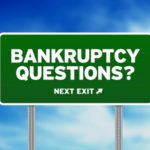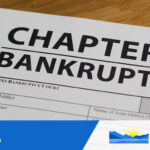Increased Bankruptcy Filings as a Result of the Housing Bubble
Every American is aware of the housing bubble. We’re also aware of the fact that it burst abruptly and that it created a chain reaction of events that we would have all rather avoided. The price of housing isn’t all that changed when the housing bubble finally burst. We also saw record numbers of bankruptcies being filed as a result of the massive loss of equity, financial solvency and actual income (depending on specific circumstances)
Let’s consider a basic timeline of events leading up to and following the housing bubble.
The United States saw a massive increase in mortgage fraud from 1997-2005. This contributed to the housing bubble that seemed to grow from approximately 2001 to 2005. In 2003, several actions were taken by the US government to make home ownership easier to accomplish for more Americans. In 2004, US home ownership peaked with an all time high of 69.2%. In 2005, we saw the bubble burst or, in other words, we saw the housing market correction in action. The booming housing market came to an abrupt halt in 2005. From the 4th quarter of 2005 to the first quarter of 2006, median housing prices nationwide dropped off 3.3%. As 2005 came to a close, 846,982 properties were in some stage of foreclosure and the market continued to experience substantial slow downs throughout 2006. Foreclosures were up 42% in 2006 in comparison to 2005, prices were down, there was an overwhelming inventory of housing, US Home Construction Index was down was down over 40% in comparison to the year before, etc. The problems created by the housing bubble bursting continued to escalate over the next several years with foreclosures hitting a peak in 2009 at 3,957,643. More than 2.21% of all households were in some stage of foreclosure in 2009. No one was living inside the housing bubble anymore.
This drastic halt to the real estate industry’s seemingly “healthy” housing market resulted in financial crisis for many Americans and American families. In a chain reaction that anyone could predict, the number of bankruptcy filings escalated right along with the number of families struggling not to lose their homes to foreclosure. Some experts suggest that the American public is recovering from their financial crises quickly in comparison to the housing market itself. The housing market will gradually correct itself, but the American public is actively taking steps to correct the situation. The immediate result of the housing bubble on Americans was financial panic in many households, but a few years after the fact, bankruptcy filings are at a much lower level. Some suggest that the American public is getting smart. They’re getting out of debt (with bankruptcy or other alternative methods) and cutting up their credit cards and socking away cash. They’ve learned the lesson handed down by the recent housing bubble correction and following recession.
Others point to the difficulty in obtaining new debt immediately following the burst of the housing bubble as the reason behind the decline in individual bankruptcy filings. If people don’t have debt, they don’t need to file for bankruptcy and for a few years, it was suddenly a lot harder to get approved for any type of loan. Whatever the reason, Americans seem to be getting back on track financially.
If you need help getting back on a healthy financial road, contact Firebaugh & Andrews for your free consultation 734-722-2999

 Previous Post
Previous Post Next Post
Next Post